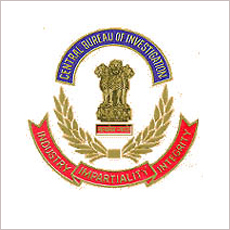  The CBI on Tuesday opposed bail plea of five corporate executives citing the magnitude of the of offence as reason. "It (non-arrest of five accused) may be a colourable exercise of power by the investigating agency but it does not entitle the accused to get bail ipso facto (by default) as a matter of right," senior advocate U U Lalit submitted before Justice Ajit Bharihoke.
The agency, which did not arrest during the probe Swan Telecom Director Vinod Goenka, Unitech Wireless (Tamil Nadu) Ltd Managing Director Sanjay Chandra and three top officials of Reliance ADA Group Gautam Doshi, Surendra Pipara and Hari
Nair, opposed their bail plea and attempted to justify the lower court order on the issue.
The corporate accused are cooling their heels in Tihar Jail after their bail plea was dismissed by the special court on April 20.
"Now the matter is between the court and the accused who were allowed to enjoy liberty during probe. The court is not supposed to toe the line of investigating agency," Lalit, Supreme Court-appointed special prosecutor, said.
The courts should use their "independent" and "judicious" discretion in deciding bail applications of the accused and not give weightage to decisions of the probe agency which were taken during the investigation.
Rubbishing the claim of top defence lawyers including former Attorney General Soli J Sorabji, Lalit said the so-called legal proposition that the accused be granted bail ipso facto in case they were not arrested earlier would lead to "disastrous" consequences.
To buttress his arguments, Lalit cited various apex court rulings including that of Satyam fraud and Sohrabuddin Sheikh fake encounter killing cases.
"The role of the court begins after filing of chargesheet.
By the logic of defence lawyers, no person could be made an accused if police, rightly or wrongly, file a negative probe report (closure report) in a case," the prosecutor said.
Non-arrest of the accused, their co-operation during the probe and no past criminal records, could be a relevant criteria but other factors such as their complicity and gravity of the offence cannot be overlooked, he said.
Besides legal issues, Lalit also dealt with the factual aspects of case by referring to relevant portions of the chargesheet to indicate the role of the accused.
The court then posted the matter for further hearing on April 29.
|